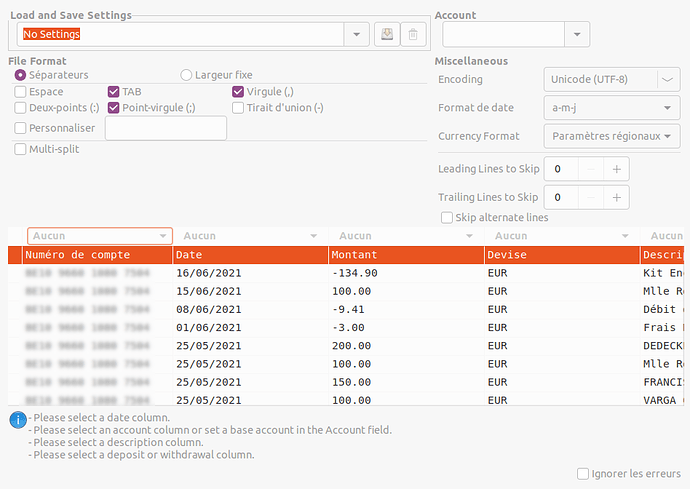In France, many banks (all those of the BPCE group at least) don’t propose bank statement export in formats other than csv. Currently I use a complex process to convert this csv to OFX, then I manually add some missing field, to be able to import statement as a OFX file.
I propose to write a module account_statement_csv that would use directly the csv from the online bank account interface to import statements.
Is it a bad idea or do you think to a better way?
CSV format is not a standard for statement. You can not have a unique parser for such generic format.
I think the first step is to collect the maximum of format example. Then maybe we could find some common format and so kind of standardize them.
Otherwise normally every EU banks should provide SEPA, so working on CAMT053 SEPA Statement module (#4658) · Issues · Tryton / Tryton · GitLab could be better.
We have solved our CSV to OFX problem with this simple utility that we place under GPL license:
It’s a small js-in-html-page convertor from the particular CSV output to OFX ready to be imported into Tryton.
Actually the lack of standardisation is not a problem if we create a custom mapping to handle the format.
Gnucash provide this kind of functionalities. You set few formatting parameters (separator, encoding,…) and then you can bind each field (date, account, name ,…) with a column number.
I think it would work best to tell what CSV format would map well towards the statements Tryton would like to see. Then people can convert their CSV files to those columns and format.
That makes it a lot easier than converting CSV to MT940 or the other XML based formats.
